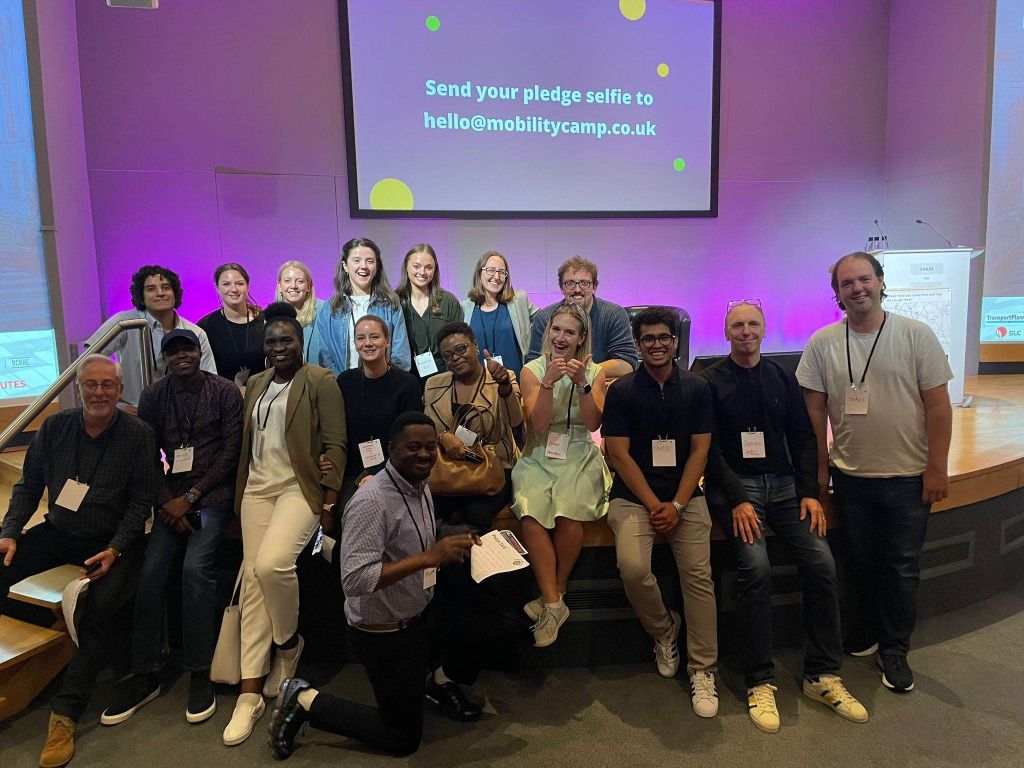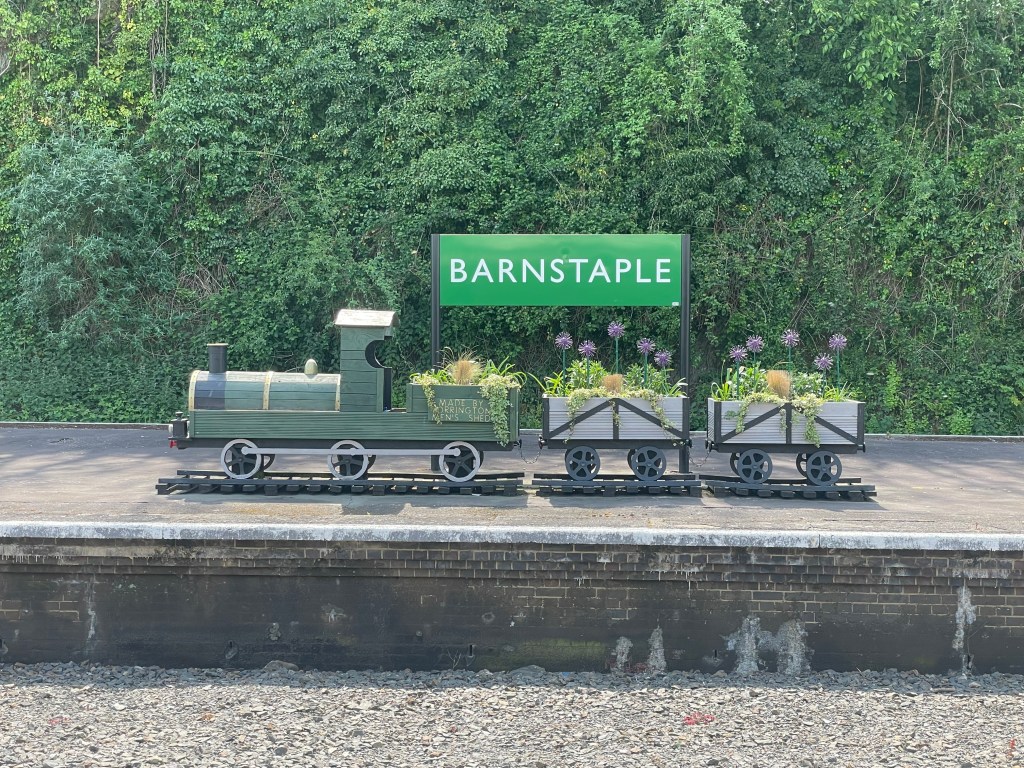Good day my good friend.
This newsletter was meant to go out last Friday. And you are probably wondering why it didn’t. The reason is a simple one, really. On Thursday evening, I developed quite a bad case of writers block. This occasionally happens to me, where my brain literally cannot come up with the words to write. This time, it was a bad one, and I didn’t really recover from it until Saturday morning (or now, as I am writing this).
I mean, all is fine. It happens far more than you think, and it always gets better. But when you are writing to a deadline it does not help. So here, on Monday, you have last Friday’s newsletter.
If you like this newsletter, please share it with someone else who you think will love it. The main way my audience grows is through your recommendations. I will love you forever if you do. 😃
I have co-authored a book on Mobility-as-a-Service, which is a comprehensive guide on this important new transport service. It is available from the Institution of Engineering and Technology. 📕
🚉 Rail nationalisation is a pointless argument made by pointless people
Now we have that out of the way, lets go into Labour’s plan for renationalising the railways in the UK. Because rail renationalisation is one of the most pointless arguments that we have in transport that only has a tangential relationship to actually making improvements for passengers.
Words cannot describe how much I hate this debate. As though renationalisation will magically solve all of the ills of the rail network. Here’s a newsflash for you: it won’t. In the same way that fragmented privatised railways can operate poorly, so can a nationalised system as well.
There are positives to Labour’s plan. The Passenger Standards Authority, with appropriate powers to force industry organisations to make change, could be a real force for good in the industry. Automatically offering the best fare could also work is designed well. Other than this, the plan is that the existing franchises are taken back under public control once they expire, through Great British Railways acting as an operator.
My reasoning why this is all a pointless argument is a simple one. Regardless of the system architecture, the incentives remain unchanged. The ultimate incentive of the current railway system is to maximise returns (or minimise costs) to the Treasury. Every other issue, ranging from cancellations to customer service, is incidental to that incentive. There is a very real chance that this proposed reform will end up like every other reform that has taken place since privatisation.
The issue of nationalisation is fundamentally one of ownership. That’s it. Who owns the infrastructure (the UK government already owns it), who owns the services (to become the UK government under this plan) and who owns the trains (which will remain in private hands). That is the only question that renationalisation provides a definitive answer to.
All other questions around strategy, finances, direction of the railways, returns on investment, everything else can be answered regardless of the ownership structure. Heck, some of the best railways in the world – namely the Japanese – are entirely privately run. If there is no incentive for the system to provide socially just outcomes or make things better for passengers, it really doesn’t matter if its publicly-owned or not.
There are some matters that become easier under a public railway. Matters of competition tend to be much less of an issue, as there (in theory) isn’t any, and there is the potential for a single, unifying direction for the railway under a single organisation. But even this does not mean success will happen.
To me, the issue of nationalisation or privatisation is a philosophical one as opposed to a practical one. If you feel that transport is a public good, then maybe public transport should be nationalised. If you believe in the power of the market to deliver the best outcomes, go for privatisation.
But when somebody comes to you, and promises that nationalisation will solve everything, treat the argument with the destain that it deserves.
👩🎓 From academia
The clever clogs at our universities have published the following excellent research. Where you are unable to access the research, email the author – they may give you a copy of the research paper for free.
Bicycle use in the university community: Empirical analysis using MobiCampus-UdL data (Lyon, France)
TL:DR – The built environment and home location are key factors in students taking up bicycles.
Review of the Impacts of Human Factors on Cycling: Perceptions, Workload, and Behavior
TL:DR – The mental workload of cyclists is poorly understood.
TL:DR – The data of the economic benefits of light rail struggle against people’s perceptions that they are bad.
Free fare for better air? Evaluating the impacts of free fare public transit on air pollution
TL:DR – Turns out offering free fares does little to improve air quality.
✊ Awesome people doing awesome things
In a time of disinformation, the truth can be a dangerous thing to speak. We know that reducing traffic speeds saves lives. Rhiannon, from Holywell, Flintshire, put this perfectly. A vehicle travelling at 20mph hit her son, and while he was hospitalised he should be fine. At 30mph, chances are he wouldn’t be here and she would be a grieving mother. I admire her bravery in wading into this extremely toxic debate.
📆 Something for your diary
The excellent Leo Murray will be giving the annual Transport Planning Society Lecture at One Great George Street in London on Thursday evening. Giving the perspective of the campaigner in getting people to use cars less. I will be there as well.
📺 On the (You)Tube
Concrete has a problem: we are literally running out of sand to make it. Luckily, in transport, we transferred to asphalt long ago, and its the most recycled material in the world.
🖼 Graphic Design

The Carbon Footprint of Major Travel Methods (Source: Visual Capitalist)
Variations of this image have been doing the rounds for a number of years. Now it includes that cruise that you may have been planning. Sorry, while the ferry is very good, playing the casino while sailing out of Southampton is not.
📚 Random Things
These links are meant to make you think about the things that affect our world in transport, and not just think about transport itself. I hope that you enjoy them.
- Nature conservation works, and we’re getting better at it – new study (The Conversation)
- ‘In the US they think we’re communists!’ The 70,000 workers showing the world another way to earn a living (The Guardian)
- I Love Seeing Terrible People Realize They Are Wrong (Slate)
- Future of Humanity Institute shuts: what’s next for ‘deep future’ research? (Nature)
- They turned cattle ranches into tropical forest — then climate change hit (The Verge)
📰 The bottom of the news
The streets are not safe for our animal friends, as a couple of horses showed last week. After getting spooked, four horses from the Household Cavalry in Belgravia ran through the streets of central London, with two of them running for 5 miles. Thankfully, all seem to be recovery. Oh, and on the same day, the clock on the Elizabeth Clocktower (Big Ben, if you want to be wrong) stopped.
👍 Your feedback is essential
I want to make the newsletter better. To do this, I need your feedback. Just fill in the 3 question survey form by clicking on the below button to provide me with quick feedback, that I can put into action. Thank you so much.





One response to “🤦♀️ Not this again”
disdain
LikeLike